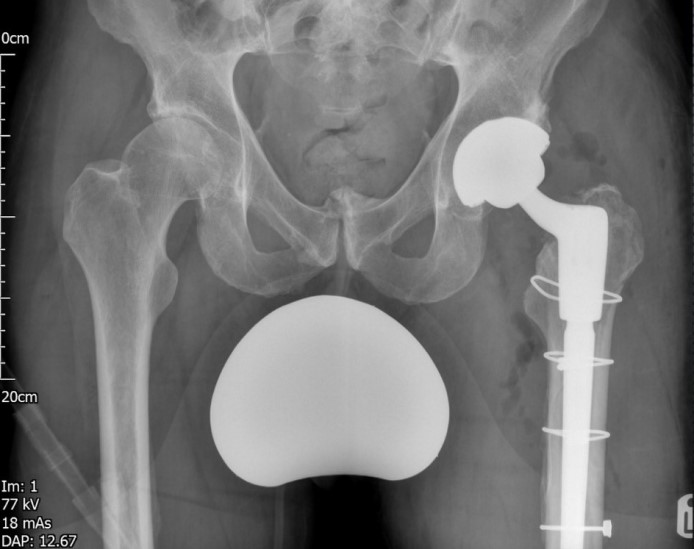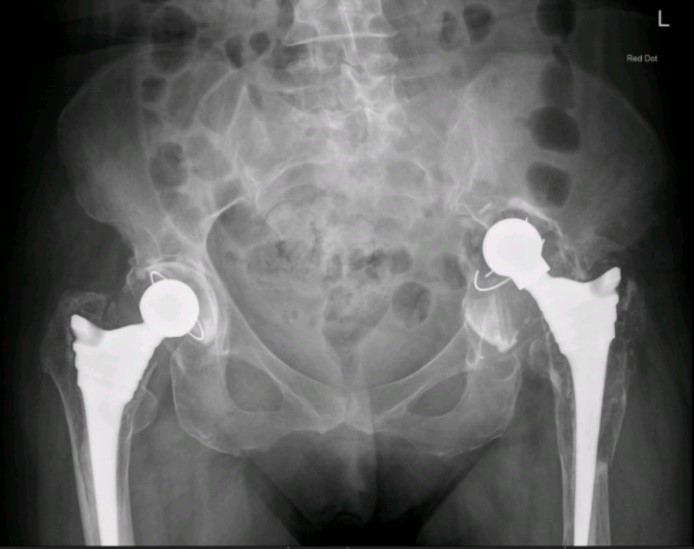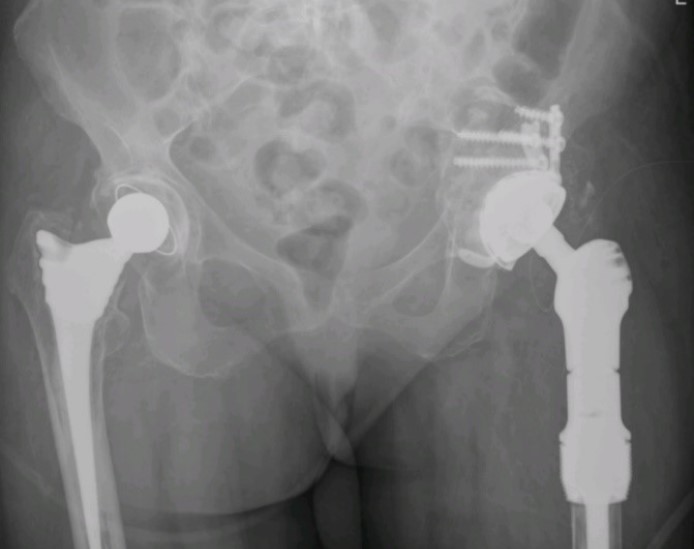Revision Surgery
Over time, joint replacements do wear out or fail and many patients are faced with needing revision surgery. Mr McKenna is experienced in both revision hip and knee replacement and was Fellowship trained in complex revision surgery at the Nuffield Orthopaedic Centre in Oxford. The implants used will vary depending on the bone loss that has taken place as the joint replacement has failed.
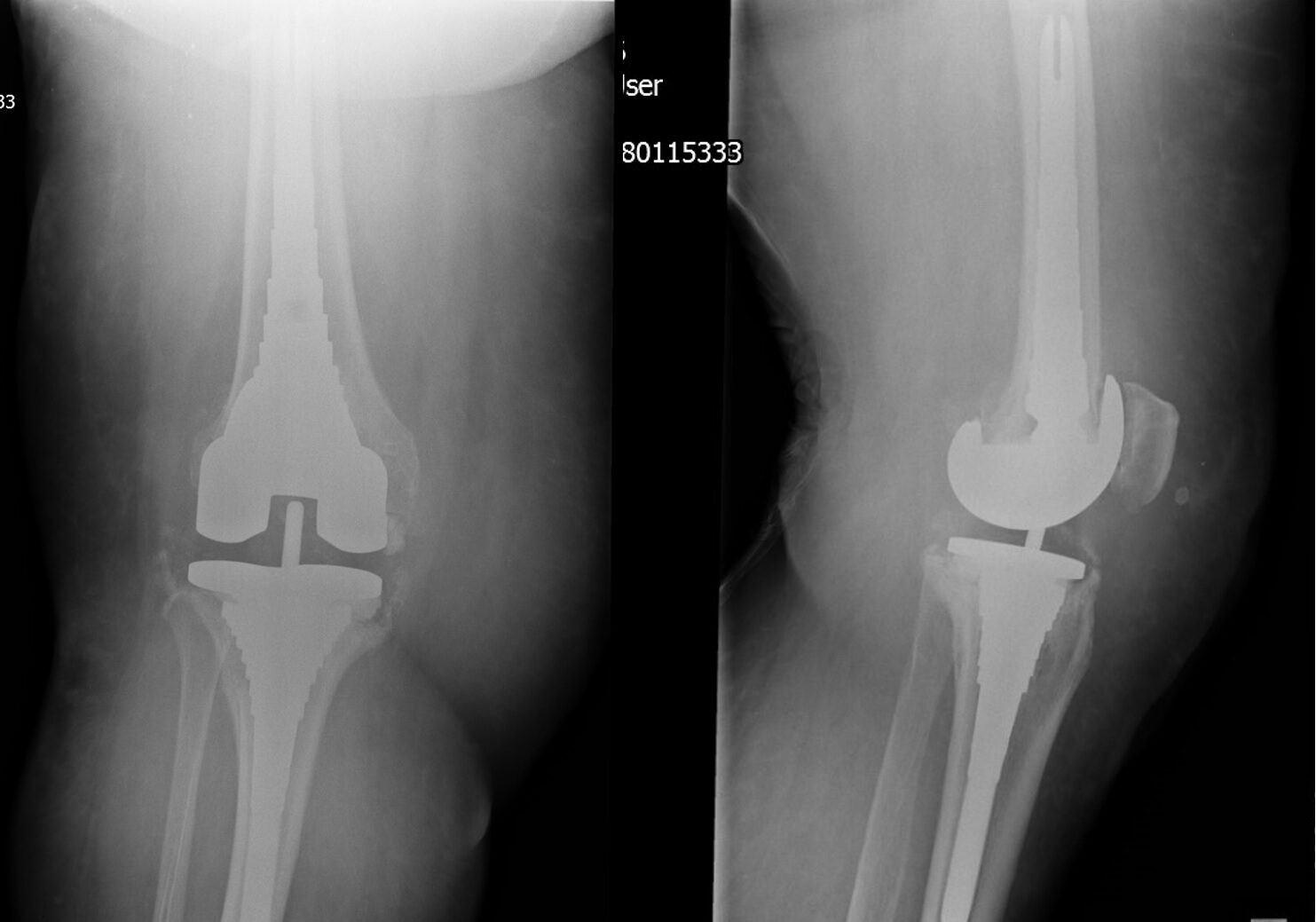
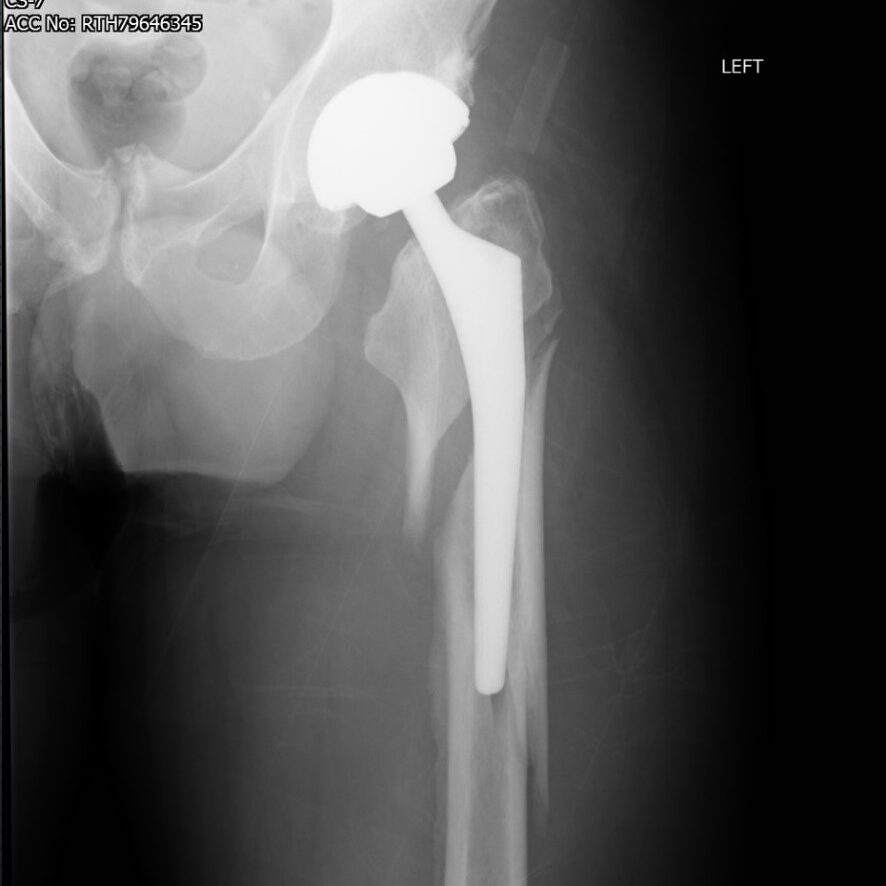
Mr McKenna employs a variety of revision techniques: uncemented, cemented, long or short stems, trabecular metal, cages, bone grafting, dual mobility bearings and megaprosthesis in his revisions. He is able to offer his revision patients the best approach for their individual situation. Mr McKenna uses an MDT approach to all his hip revisions as recommended by the British Hip Society and The British Orthopaedic Association.
Revision Hip Surgery
Hip replacements can fail for a number of reasons – infection, fracture from a fall, repeated dislocations, wear and tear. Older implants using older bearing technology (older versions of polyethylene) have been shown to fail with bone loss (osteolysis). Metal-on metal hips have been shown to fail with metallosis causing bone and soft tissue damage around the hip.
Having completed an (Extreme) Revision-Hip Fellowship in Oxford Mr McKenna has gained vast experience of all modes of hip replacement failure. His tumour surgery experience enables him to use megaprostheses (endoprosthesis) to deal with the most extreme forms of bone loss (multiply revised hips). He also has experience of bone grafting techniques to restore bone loss on the acetabulum (socket).
Revision Knee Surgery
Knee replacements can fail when they wear out, or the patient develops arthritis in an area of the knee that was not previously replaced, or because of patient dissatisfaction. As many as 1/20 patients are dissatisfied with their knee replacement. This can be experienced when the components are mal-aligned or mal-rotated. Dissatisfaction can also occur if a knee replacement was performed when there was only minimal arthritis to start with. There is absolutely no benefit to having a knee replacement early – it is an operation for end-stage arthritis. A common reason for dissatisfaction is “unexplained pain”.
In every case the reason for dissatisfaction must be established before proceeding to revision surgery. Having a revision of a knee replacement for “unexplained pain” is unlikely to yield an improvement in patient satisfaction.
Revision of a failed total knee poses a number of challenges – dealing with bone loss or ligamentous instability. Mr McKenna has experience of augments, cones and stems to deal with bone loss and varying degrees of constraint to deal with ligamentous instability.
Mr McKenna uses an MDT approach to all his knee revisions as recommended by The British Association of Surgery to the Knee (BASK) and the British Orthopaedic Association.
